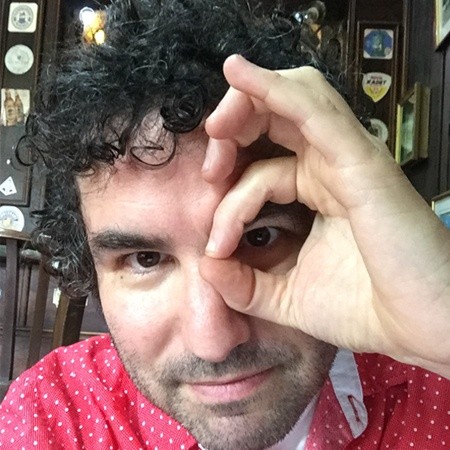Heraclitus, Heraclitus: widely remembered as one of the early (even by Plato’s standards!) Greek thinkers of antiquity, we’re told, and most widely remembered for the every pithy: “no man ever steps into the same river twice.”
He is less remembered, however, for a bunch of his other–still insightful–arguments, such as: everything is fire. To use his words, “This world, which is the same for all, no one of gods or men has made. But it always was and will be: an ever-living fire, with measures of it kindling, and measures going out” and “All things are an interchange for fire, and fire for all things, just like goods for gold and gold for goods.”
His observation is more subtle than it might seem at first glance. Everything being fire does imply a few interesting things: everything is painful (fire burns!); everything is always spreading or weakening (fires are conquering all around it or turning into embers); everything can be reduced to one core concept from which all your understanding emanates (fire, in Heraclitus’ case); and, possibly most importantly, everything is really just shining light in a way that may not be obvious at first glance.
How would this apply to Heraclitus being a PPC? I think a normie who was analyzing how the great philosophers would be PPC’s would be inclined to argue against Heraclitus as a great PPC. (You know, analyzing how great philosophers would do as PPCs is a very normie activity, of course!) The reason is direct: he is widely considered to be, and even mocked for it, one of the earlier and simpler philosophers. You know, the good old days, when people were smart but simple, and then the sophisticated guys like Plato and Aristotle came around. The good old days, as always!
I’d argue, however, the opposite: I think he would be great. For a few reasons.
First, forgetting his insights, he basically created philosophy from scratch and that is quite a feat! To be a great PPC and to do great client work, you need to be able to go into a space where there is nothing and great something. That’s the secret–and that’s actually one of the secrets of fire, too (just a small spark–and bam!). Yes, he may not have been the most sophisticated philosopher around, but still: who would know Google Ads better: the guy who built the first version of it (way back when it was just “Adwords”!) or a smarter guy who just showed up years later? Unless your smarter guy is literally Plato or Aristotle, I’d probably have my money on the older guy.
Secondly, before looking at fire, let’s examine water (he did like the elements, didn’t he? I guess the simpler guys really started from the basics!): you never step into the same river twice, as we quoted above. That is an important insight that is easy to forget: as we want to scale our clients and work more algorithmically, it’s our instinct to standardize. But every situation is different, every client is different, and so forth: it’s a fundamental and basic fact that is just easy to forget.
Now, third, let’s talk about the core topic at hand: fire. His insight on fire has deep ramifications for PPC. One is this: fire is always changing; that is to say, it’s always getting stronger or weaker (or just different sometimes). It’s like an Ad campaign: you’re making it better and better, or you’re letting it die. Sadly this happens too much. Too many agencies let their smaller clients’ campaigns just whither away. This is a key point: there is no mid-point. Potential clients: remember that! You’re either your client’s priority, or you’re not. That’s it.
Fourth: the approach that you can reduce everything to one simple idea is also compelling. While in PPC (like life and the universe!) there are lots of moving parts and endless complexity, having one core item (say, an element like fire) through which you interpret everything is very powerful.
Let’s take a PPC example. Let’s say you’re particularly obsessed with, say Conversion Optimization / CRO. That’s just your thing. That’s cool, and conversion optimization is one of the more fun parts of this line of work, actually. But with that lens, you can apply it to every aspect of PPC: which keywords should go to which landing page to make it more likely to convert? How should this keyword connect to that test on that landing page? How should this ad text be consistent with this test, but what if it’s not consistent with that alternate B version also there, what do we do? Will the mobile version traffic make people on their phones more or less likely to convert, and what should you do differently as a result? And so forth and so forth and so forth.
Conversion optimization may not necessarily be the best lens to view PPC; but it is certainly a lens. And once you start using a lens to see the world, then, well, you’re using a lens to see the world! And that’s very powerful. Maybe humor is your thing and you incorporate pure pleasure and enjoyment into the ad text, the landing page, the ad extensions, and even into your client reports! There are endless lenses you can use–and your lens must correspond to your particular talent and area of interest. (If you hate math, please don’t use algorithmic optimization as your worldview!)
All in all, I stand by my hypothesis. Popper-inspired, I might want to try to disprove it and really the best argument against Heraclitus is: perhaps Aristotle would be even better. Indeed, Heraclitus in real life was a great thinker, and Aristotle an even better one, insofar as “real life” exists. And I Take The Fifth on Plato, a man who stirs up too many emotions on too many sides to simply boil down to the Better or Worse scale. All of philosophy is footnotes to Plato as Whitehead reminded us, not to Heraclitus.






